Articles Archive
See all articles and discover more interesting topics!
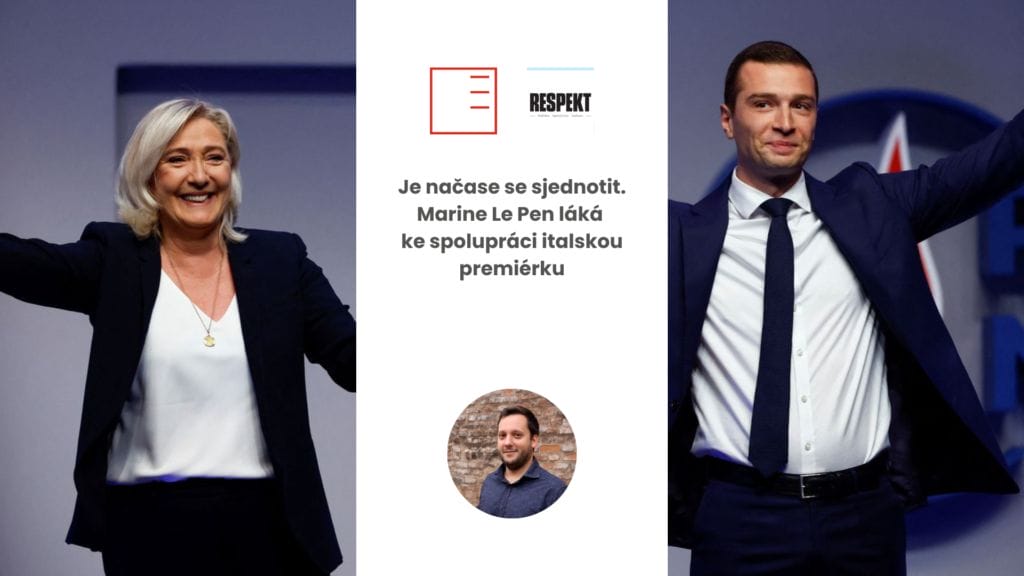
Respekt | It's time to unite. Marine Le Pen is enticing the cooperation of the Italian Prime Minister
In France, final preparations for the July summer Olympic Games are underway, but according to surveys, less than half of the French believe the country can ensure a their smooth course. Confidence in current political leaders has also been undermined by the European elections, where the opposition scored a significant victory. The opposition far-right National Rally led by Marine Le Pen no longer wants to leave the EU; they want to influence it. However, they need allies for that. Žiga Faktor, Deputy Director and Head of the Brussels Office at EUROPEUM Institute, comments on this for Respekt magazine.
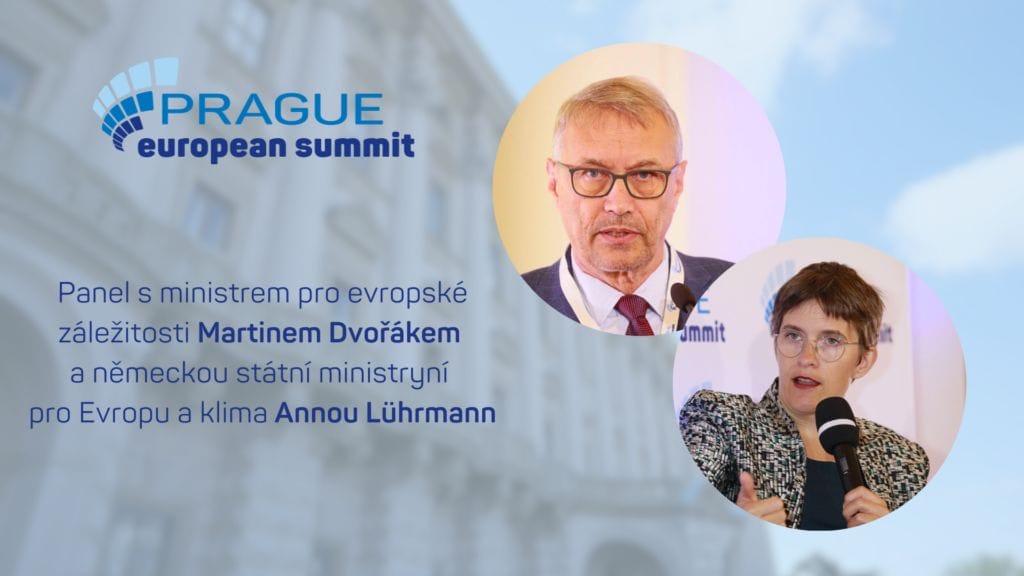
PES 2024 | The EU must cooperate not only militarily, but also to defend itself against cyber attacks from Russia, said Minister Dvořák at the conference
The second day of the Prague European Summit 2024 conference at the Czernin Palace was opened with a speech by Czech Minister for European Affairs Martin Dvořák. He thinks of the enlargement of the European Union as crucial. "We have to realize that the enlargement of the EU, our defense and security and the current Central European position are interconnected," he said.
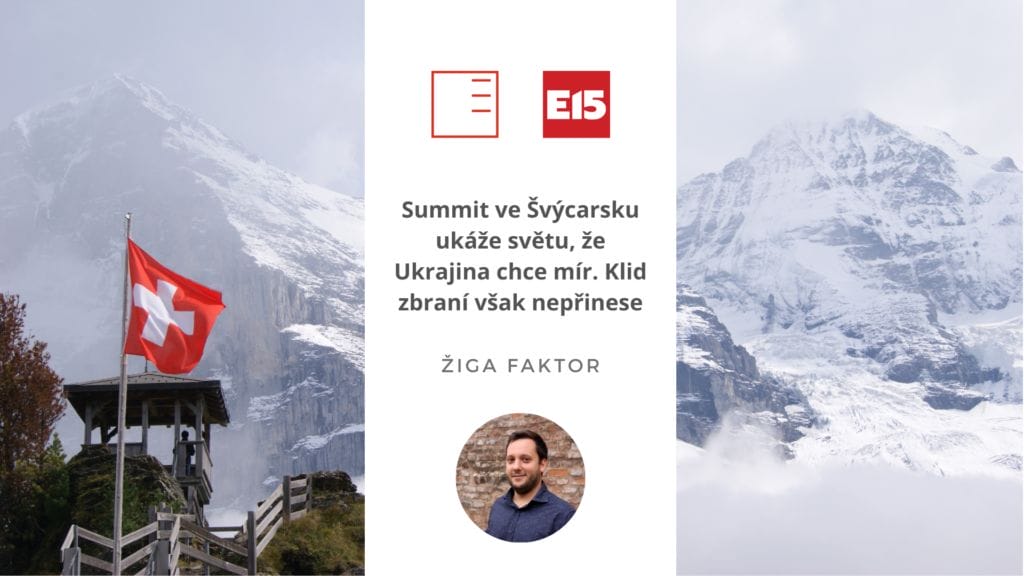
e15 | Summit in Switzerland will show the world that Ukraine wants peace. But it will not bring it
The luxury Alpine hotel Bürgenstock on the shores of Lake Lucerne in Switzerland will host the largest peace conference on Ukraine to date this coming weekend. Leaders and diplomats from nearly 90 countries will be there to seek ways to end the worst armed conflict in Europe since the Second World War. The ambitious event has been accompanied by criticism over the non-participation of Russia, China and US President Joe Biden. Even so, experts say the summit could be an important first step towards peace. Žiga Faktor, deputy director and head of the Brussels office of EUROPEUM Institute, describes the possibilities the conference will offer for e15 journal.
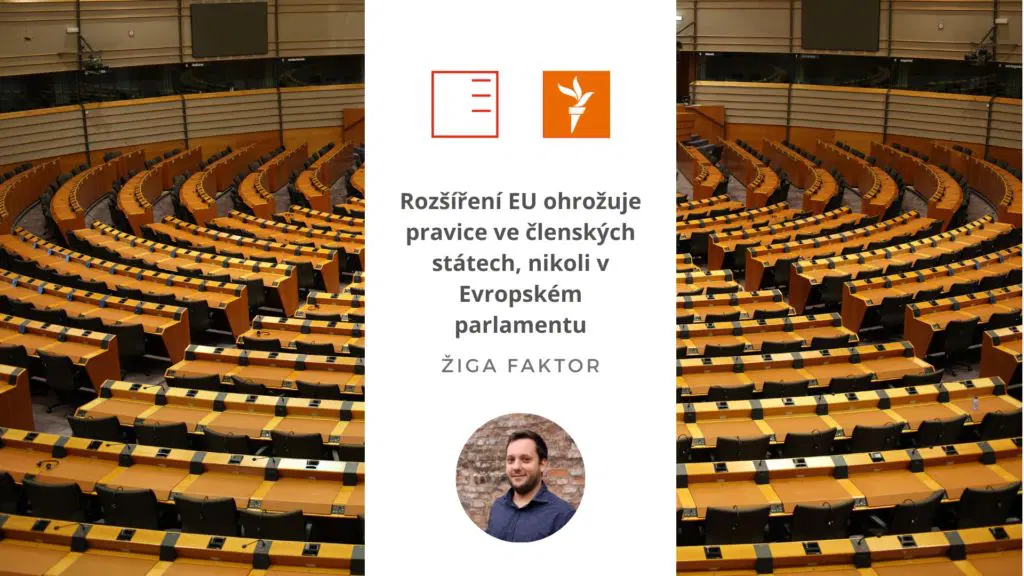
Radio Free Europe | EU Enlargement is threated by the far right parties in Member States, not in the European Parliament
Even thought parties belonging to the far right achieved good results in the European elections, their growth was not enough to have a major impact on politics in the future European Parliament. What developments can we anticipate with regard to the policy of enlargement of the EU after the elections? Žiga Faktor, deputy director and head of EUROPEUM Institute's Brussels office, comments on the situation for Serbia's Radio Free Europe.
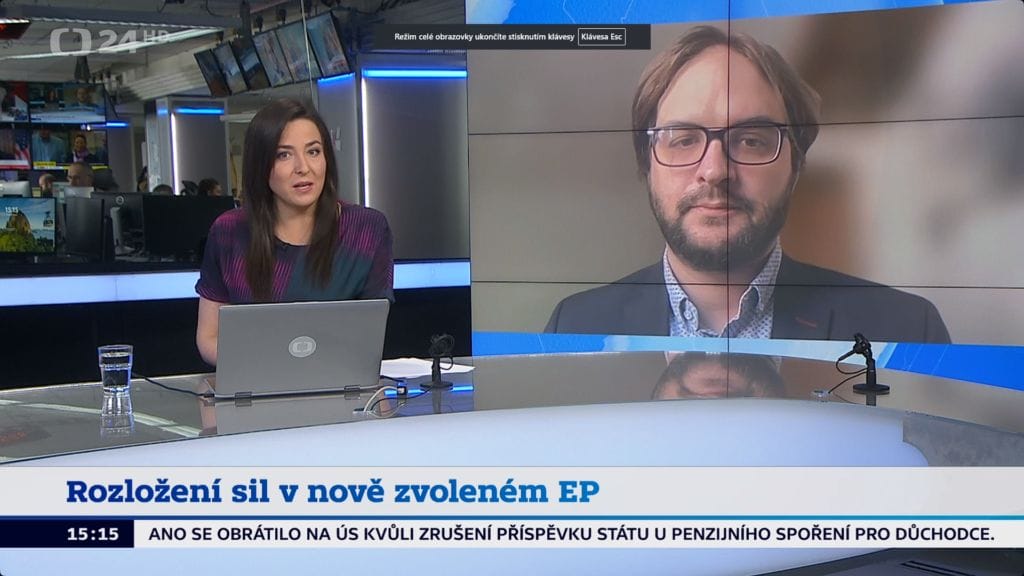
ČT24 | The balance of power in the newly elected European Parliament
The European Parliament has many negotiations ahead of it, be it the distribution of political parties in the political groups, the filling of key positions or the names of the new European Commissioners. What is the most interesting thing to watch on the European stage right now? What other moments will now influence the development of European politics? Vít Havelka, research fellow at EUROPEUM Institute, comments for ČT24.
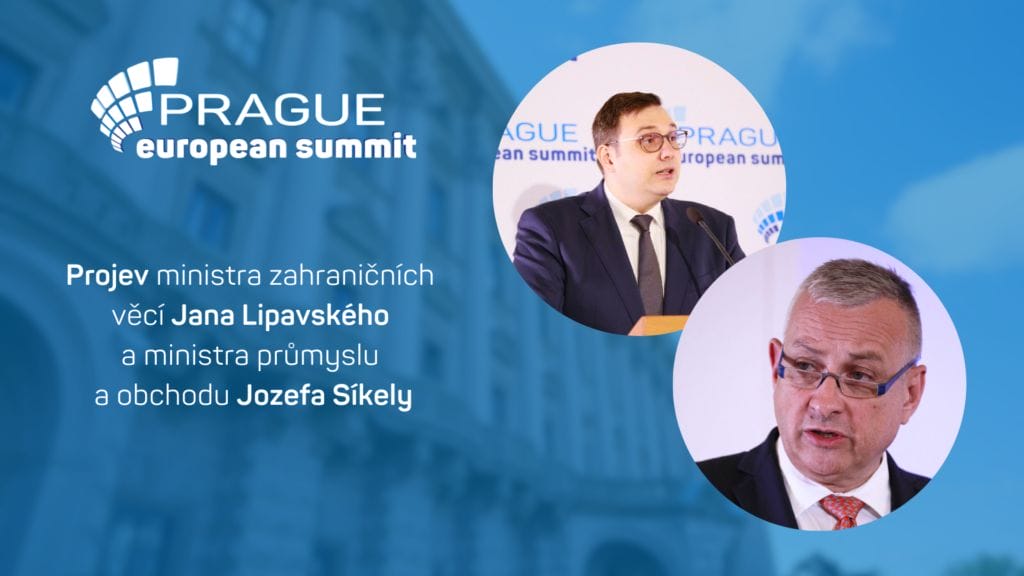
Prague European Summit | "Nuclear energy must be part of the Green Deal." Ministers Lipavský and Síkela presented their priorities for the next European Commis
Minister of Foreign Affairs Jan Lipavský and Minister of Industry and Trade Jozef Síkela delivered speeches at the 10th anniversary of the Prague European Summit. Both responded to the ever-changing challenges facing Europe and Russia's expanding aggression, while Minister Síkela stressed the need of economical transformation.
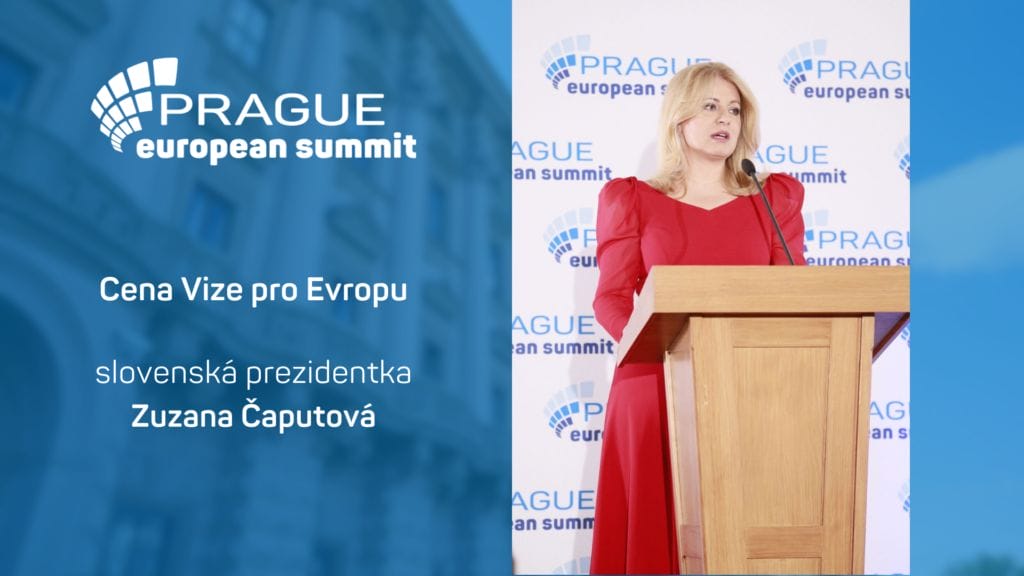
Prague European Summit | Slovak President Čaputová warned against the rise of extremism and hatred on social media
Slovak President Zuzana Čaputová was the guest of honour at the 10th anniversary Prague European Summit. At the Czernin Palace, she received the traditional Vision for Europe Award from the Czech Minister of Foreign Affairs Jan Lipavský.
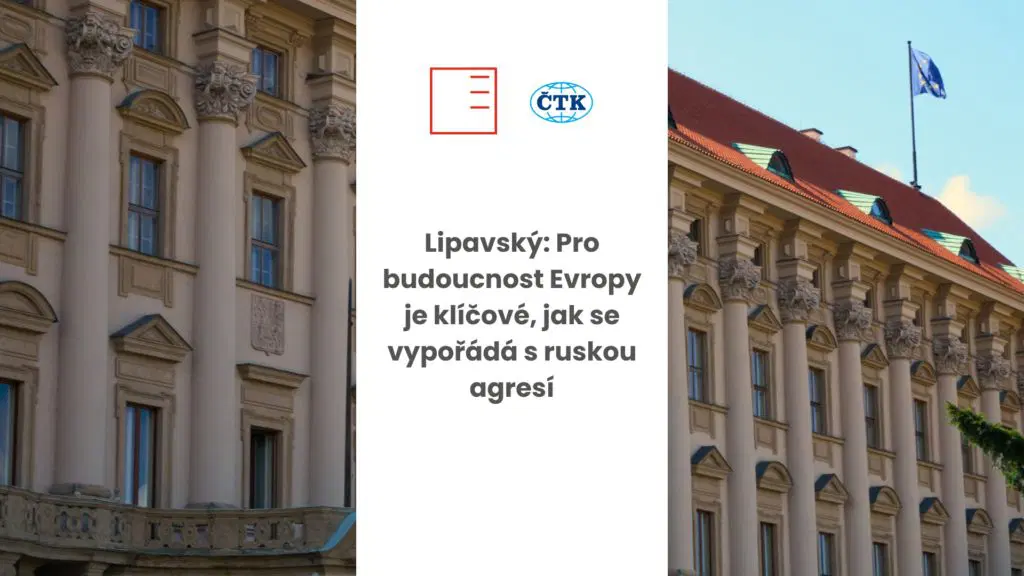
ČTK | Lipavský: Dealing with Russian aggression is key for the future of Europe
According to Minister of Foreign Affairs Jan Lipavský, it is crucial for the future of Europe how it deals with Russia's brutal aggression towards Ukraine and its increasingly aggressive stance towards the West. He also emphasized that it will be essential for the European Union to ambitiously strengthen its role as a global player in the coming period, including prompt action in the development of the defense industry. He presented this vision in his speech at the Prague European Summit co-organized by EUROPEUM Institute and the Institute of International Relations.
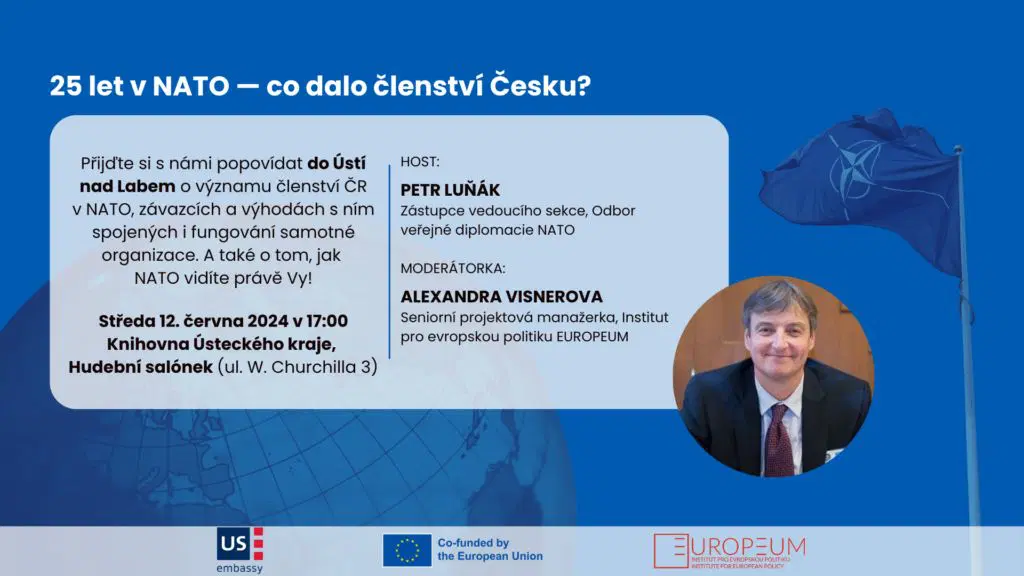
Debate: 25 years in NATO - what has membership given to the Czech Republic?
We invite you to the second regional debate within the 25th anniversary of the Czech Republic's accession to NATO! Membership has brought benefits to the Czech Republic, but it also comes with a number of obligations. What is the importance of this alliance for us? And what do you think about NATO? Come to Ústí nad Labem to discuss these and other questions.
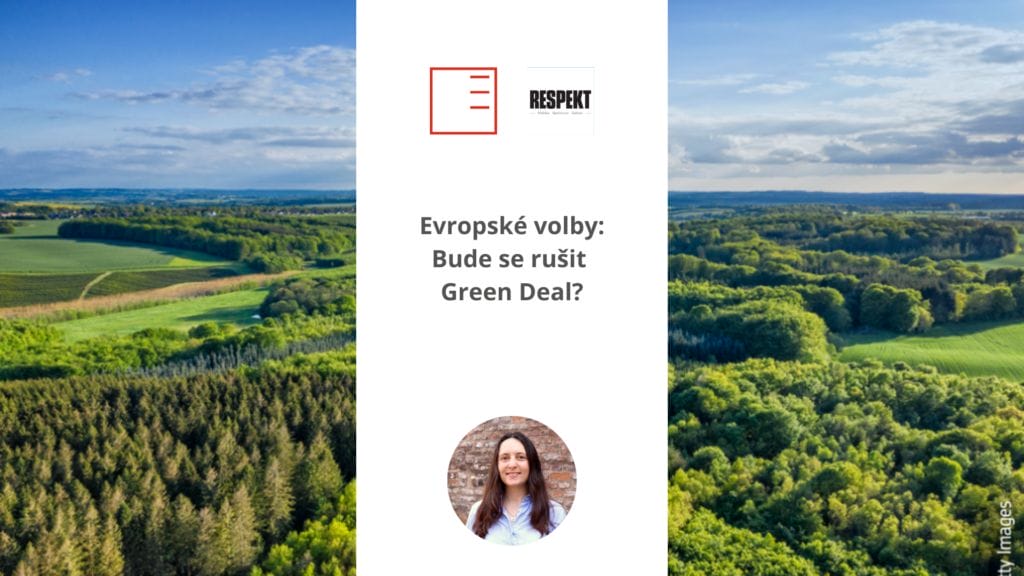
Respekt | European Elections: Is the Green Deal in jeopardy?
Despite the weakening of the strongest supporters of the Green Deal in the European Parliament elections, the parties that promoted it still dominate the political scene in Brussels. Experts agree that the Green Deal for Europe will not be abolished, however, adjustments may be made to it. Commenting for Respekt magazine is Kateřina Davidová, a researcher at EUROPEUM Institute.
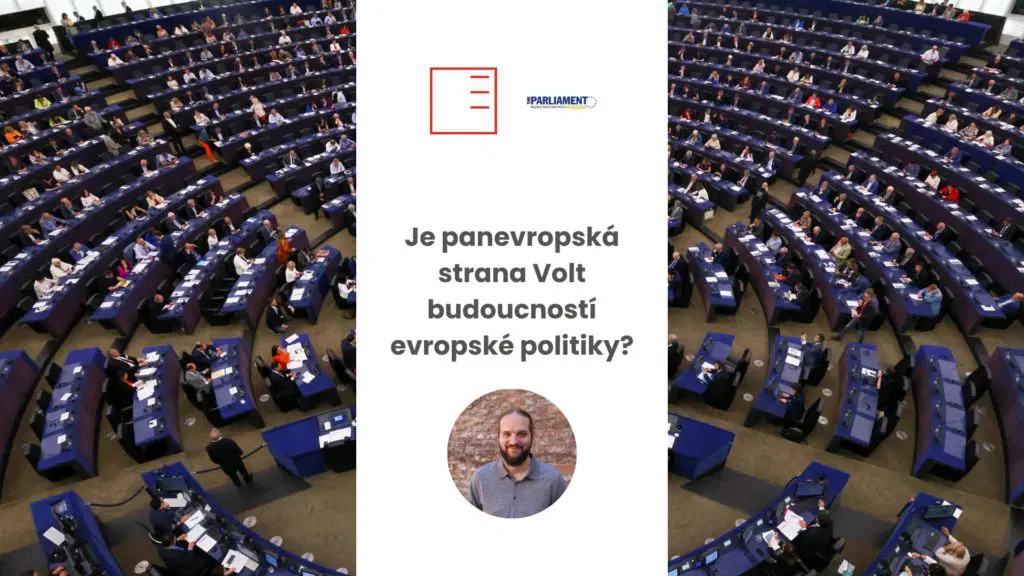
The Parliament Magazine | Is pan-European party Volt the future of EU politics?
The political group Volt received five times more votes in this year's European elections compared to 2019. Does it have the potential to gain even more support? Where did this political group come from and what is in its program? Vít Havelka, Senior Researcher at EUROPEUM Institute, commented for The Parliament Magazine.
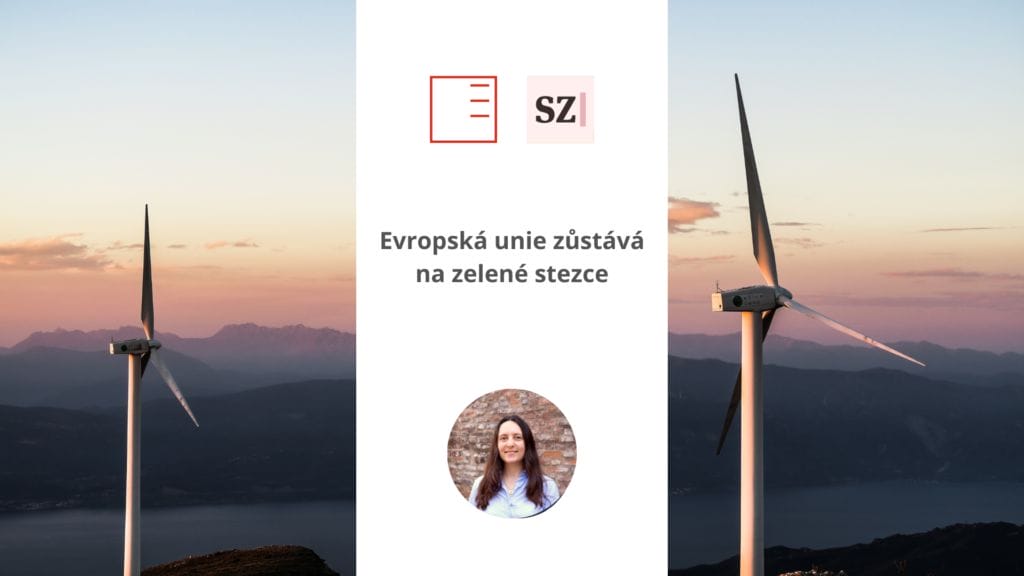
Seznam Zprávy | The European Union remains on the green path
The green parties has weakened, while the eurosceptic, far-right and climate-sceptic factions have strengthened. However, this is unlikely to be a significant obstacle to the implementation of the Green Deal for Europe. The parties behind it have retained the most seats. What implications will the results of the European Parliament elections have for the Union's climate and environmental policy over the next five years? Senior researcher of EUROPEUM Institute Kateřina Davidová commented for Seznam Zprávy.